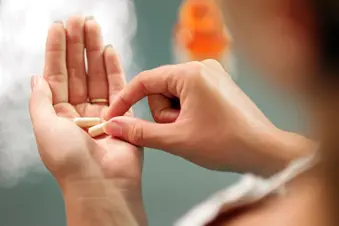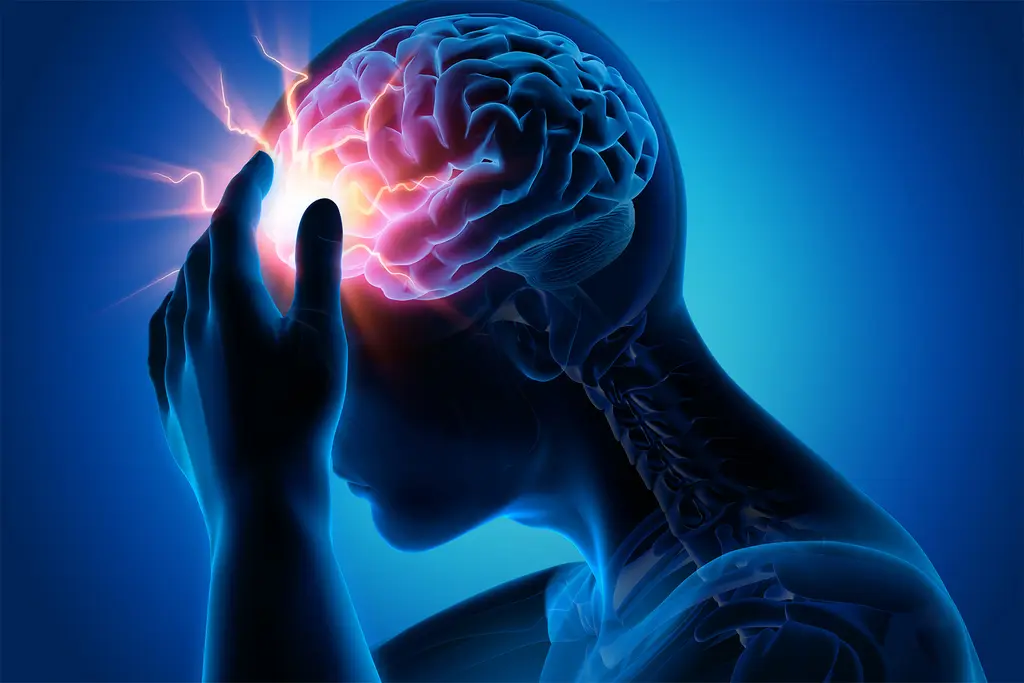
If you get migraine pain often, you’ve probably tried over-the-counter pain relievers like aspirin or ibuprofen. You may have even upgraded to prescription medication.
But herbs might be an option, too. But are they safe to try and do they really work? Here’s what you need to know.
What are herbal supplements?
If a supplement is herbal, that means it comes from plants. It may be made from different parts of a plant. This includes:
- Oil
- Roots
- Seeds
- Leaves
- Fruits
- Flowers
You can also buy herbal supplements in different forms. They may come in:
- Pills
- Liquids
- Tinctures (herbs dissolved in alcohol)
- Teas
What herbal supplements help with migraine?
The evidence for herbal supplements that help with migraine is limited, but research suggests these may help migraine:
Butterbur. This herb comes from a shrub. It’s been used for centuries to treat everything from coughs to wounds. More recently, it’s use expanded to migraine. If you want to try butterbur, try to choose one that’s pyrrolizidine alkaloids-free.
It’s important to note that just because something is natural doesn’t mean it won’t have side effects. Possible side effects of butterbur include:
- Burping
- Headache
- Itchy eyes
- Diarrhea
- Trouble breathing
- Fatigue
- Stomachache
- Tiredness
Feverfew. This herb has small flowers that look similar to a daisy. It’s sometimes used for arthritis or skin conditions, too. Study results on its ability to prevent migraines are mixed. Some suggest it might lead to fewer headaches. It might also help with pain, light sensitivity, and other symptoms.
Possible side effects of feverfew include:
- Nausea
- Trouble with digestion
- Bloating
- Mouth irritation
Some people may be allergic to feverfew.
Ginger. You may use ginger when cooking. It’s known to help with pain and nausea. That’s why it has also been looked at for migraine. There’s not much evidence, but it’s generally safe to try.
Valerian. This plant has small white, purple, or pink flowers. It’s known for having a calming effect. People use it to help with nerves and sleeping, but it’s also been looked at for migraine.
Keep in mind that there are other types of supplements that might help with migraine. Herbals are just one category. Ask your doctor if there are others you can try.
Are herbal supplements safe for migraine?
You might think that herbal supplements are safe because they’re natural. But everything that’s natural isn’t good for you, especially if you take a lot of it.
It’s always a good idea to talk to your doctor before trying a new supplement, herbal or otherwise. Keep a list of all the medicines and supplements you’re taking and how much. Your doctor can tell you what’s OK and what isn’t.
It’s also important to know that supplements aren’t regulated by the FDA the same way food or drugs are. Companies that sell supplements aren’t supposed to label them something they aren’t, but it’s up to you to do a little digging to see if the company is telling the truth.
Even if they are safe, herbal remedies probably aren’t the most effective way to treat your migraine. In addition to medication, taking these steps can also help:
- Turning off the lights at the first sign of a migraine attack
- Sipping a drink with caffeine
- Getting enough exercise
- Lowering stress
- Sleeping well
Can you take herbal supplements with migraine medication?
Some herbal supplements can interact with migraine medication and cause problems. These include:
- Echinacea
- Garlic (in big amounts)
- Ginkgo biloba
- Ginseng
- St. John’s wort
- Valerian root
- Grapefruit
Show Sources
(Photo Credit: diego_cervo/Getty Images)
SOURCES:
Cleveland Clinic: “Herbal Supplements.”
American Headache Society: “Incorporating Nutraceuticals for Migraine Prevention.”
Cureus: “The Efficacy of Herbal Supplements and Nutraceuticals for Prevention of Migraine: Can They Help?”
National Center for Complementary and Integrative Health: “Butterbur,” “Dietary Supplements for Headaches: What the Science Says.”
Mount Sinai: “Feverfew,” “Valerian.”
Journal of Clinical Psychiatry: “Ginger for Migraine.”
Journal of Shahrekord University of Medical Sciences: “Effect of valerian capsules in patients with migraine attacks treated with sodium valproate: a randomized clinical trial.”
FDA: “Dietary Supplements,” “Mixing Medications and Dietary Supplements Can Endanger Your Health.”
Mayo Clinic: “Migraines: Simple steps to head off the pain.”
Stanford Medicine Children’s Health: “Potentially Harmful Remedies for Migraines.”
The Migraine Trust: “Supplements for Treating Migraine.”
